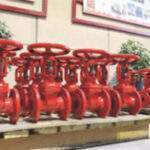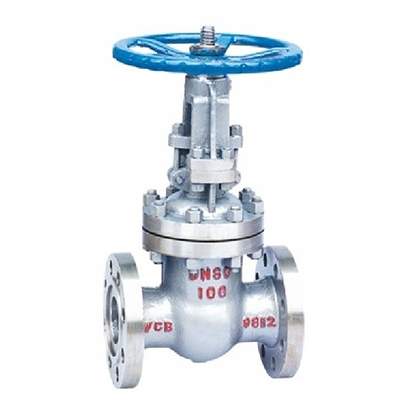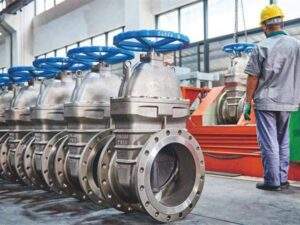Welcome to My Blog!
Before we dive into the content, I’d love for you to join me on my social media platforms where I share more insights, engage with the community, and post updates. Here’s how you can connect with me:
Facebook:https://www.facebook.com/profile.php?id=61563865935136
Now, let’s get started on our journey together. I hope you find the content here insightful, engaging, and valuable.
Introduction
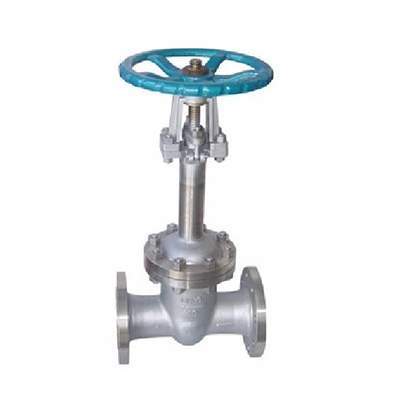
Gate valves are a cornerstone in fluid control systems, widely recognized for their reliability and versatility across industries. At Fanlei, a leading valve manufacturing company specializing in research, design, production, and sales, we understand the critical role gate valves play in ensuring efficient and safe operations. This guide explores the numerous gate valve advantages, highlighting why they are a preferred choice for professionals in industries such as oil and gas, water treatment, and manufacturing. By delving into their design, functionality, and applications, we aim to provide a comprehensive resource for engineers, procurement specialists, and industry decision-makers seeking to optimize their systems with high-quality gate valves.
What Are Gate Valves and How Do They Work?
Gate valves are linear-motion valves designed to start or stop the flow of fluids with minimal resistance. They operate by raising or lowering a gate (a flat or wedge-shaped disc) within the valve body to open or close the flow path. This simple yet effective mechanism is one of the primary gate valve advantages, allowing for full flow with low pressure drop when fully open and a tight seal when closed. Fanlei’s gate valves are engineered to meet diverse application needs, ensuring precision and durability in demanding environments.
Key Components of a Gate Valve
The core components of a gate valve include the body, gate, stem, seat, and actuator. The gate moves perpendicular to the flow, guided by the stem, which is operated manually or via an actuator. The seats ensure a tight seal, preventing leaks when the valve is closed. This straightforward design contributes to the gate valve advantages, offering ease of maintenance and long-term reliability, qualities that Fanlei prioritizes in its high-quality valve solutions.
Gate Valve Advantages: Why Choose Them?
Gate valves stand out due to their unique combination of efficiency, durability, and adaptability. Below, we explore the key gate valve advantages that make them indispensable in various industries.
Superior Flow Control with Minimal Pressure Loss
One of the most significant gate valve advantages is their ability to provide unobstructed flow when fully open. Unlike other valve types, gate valves have a straight-through flow path, resulting in minimal pressure drop. This makes them ideal for applications requiring high flow efficiency, such as pipelines in oil and gas or water distribution systems. Fanlei’s gate valves are designed to optimize flow dynamics, ensuring maximum performance in critical operations.
Tight Sealing for Leak Prevention
Gate valves are renowned for their excellent sealing capabilities, which prevent leaks when the valve is fully closed. The gate creates a tight seal against the seats, making gate valves suitable for applications where shutoff integrity is paramount, such as in chemical processing or power generation. This sealing efficiency is a key gate valve advantage, and Fanlei enhances this feature through precision engineering and high-quality materials.
Versatility Across Applications
Another critical gate valve advantage is their versatility. Gate valves can handle a wide range of fluids, including water, oil, gas, and corrosive substances, making them suitable for industries like petrochemicals, water treatment, and HVAC systems. Fanlei’s gate valves are designed to meet diverse application requirements, offering customized solutions that cater to specific operational needs.
Durability and Long Service Life
Gate valves are built to withstand harsh conditions, contributing to their long service life. Made from robust materials like stainless steel, cast iron, or bronze, they resist corrosion, wear, and high pressures. This durability is a significant gate valve advantage, reducing replacement costs and downtime. At Fanlei, we use advanced manufacturing techniques to ensure our gate valves deliver exceptional longevity, even in the most demanding environments.
Ease of Maintenance
The simple design of gate valves makes them easy to maintain, a notable gate valve advantage for industries prioritizing operational efficiency. With fewer moving parts than other valve types, gate valves require minimal upkeep, and components like seats and gates can often be replaced without removing the valve from the pipeline. Fanlei’s gate valves are engineered for ease of maintenance, helping clients reduce operational costs.
Comparing Gate Valve Advantages Across Applications
To illustrate the practical benefits of gate valves, the following table summarizes their advantages in various industrial applications. This overview highlights why gate valves are a preferred choice for specific use cases.
| Industry | Key Gate Valve Advantage | Application Example |
|---|---|---|
| Oil and Gas | Minimal pressure loss | Long-distance pipeline transport |
| Water Treatment | Tight sealing | Water isolation in treatment plants |
| Chemical Processing | Corrosion resistance | Handling aggressive chemicals |
| Power Generation | High-pressure handling | Steam control in turbines |
| HVAC Systems | Ease of maintenance | Flow regulation in heating systems |
This table underscores the gate valve advantages in specific contexts, showcasing their adaptability and performance. Fanlei’s commitment to producing high-quality gate valves ensures these benefits are maximized across all listed applications.
Design Features Enhancing Gate Valve Advantages
Bi-Directional Flow Capability
A standout gate valve advantage is their bi-directional flow capability. Unlike some valves that restrict flow to one direction, gate valves can manage fluid flow in either direction, simplifying installation and increasing flexibility. This feature is particularly valuable in complex piping systems, and Fanlei’s gate valves are designed to ensure consistent performance regardless of flow direction.
Low Operating Torque
Gate valves require relatively low torque to operate, reducing wear on actuators and easing manual operation. This gate valve advantage enhances user experience and extends the lifespan of the valve. Fanlei incorporates advanced stem and gate designs to minimize operating torque, ensuring smooth and efficient operation.
Limitations to Consider Alongside Gate Valve Advantages
While gate valve advantages are numerous, it’s important to acknowledge their limitations to ensure proper application. Gate valves are not ideal for throttling or frequent operation, as partial opening can cause gate vibration and wear. However, in applications requiring full open or closed positions, their advantages far outweigh these constraints. Fanlei provides expert guidance to help clients select the right valve for their specific needs, ensuring optimal performance.
How Fanlei Enhances Gate Valve Advantages
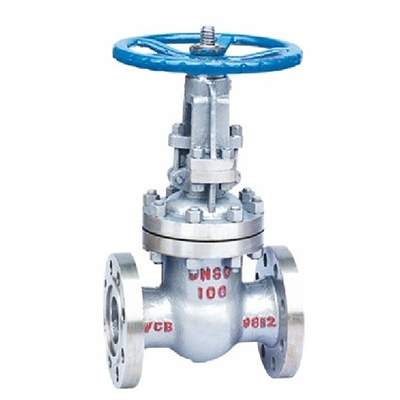
As a trusted valve manufacturer, Fanlei integrates cutting-edge technology and rigorous quality control to amplify gate valve advantages. Our research and development team focuses on improving material selection, precision machining, and innovative designs to meet global standards. Whether for high-pressure oil pipelines or municipal water systems, Fanlei’s gate valves deliver unmatched reliability and performance, tailored to the unique demands of each project.
Conclusion
Gate valves offer a compelling combination of efficiency, durability, and versatility, making them a top choice for fluid control across industries. Their ability to provide unobstructed flow, tight sealing, and long-term reliability positions them as a critical component in modern industrial systems. By choosing high-quality gate valves, businesses can optimize operations and reduce costs. At Fanlei, we are committed to delivering superior valve solutions that maximize these gate valve advantages. Contact us today to explore our range of gate valves and find the perfect solution for your needs.
FAQ
What are the main gate valve advantages?
Gate valve advantages include minimal pressure loss, tight sealing, versatility across fluids, durability, and ease of maintenance, making them ideal for various industrial applications.
Can gate valves be used for throttling?
Gate valves are not recommended for throttling, as partial opening can cause wear and vibration. They excel in fully open or closed positions, leveraging their gate valve advantages for shutoff applications.
Are gate valves suitable for high-pressure systems?
Yes, gate valves are well-suited for high-pressure systems due to their robust construction and tight sealing, a key gate valve advantage in industries like oil and gas or power generation.


